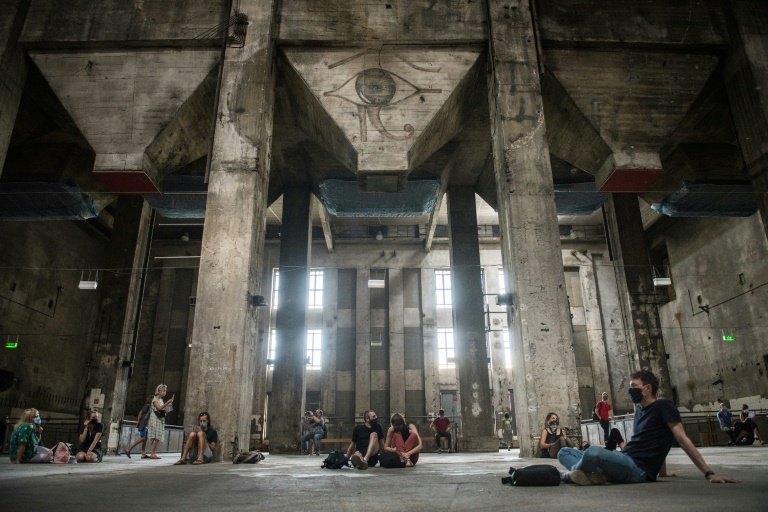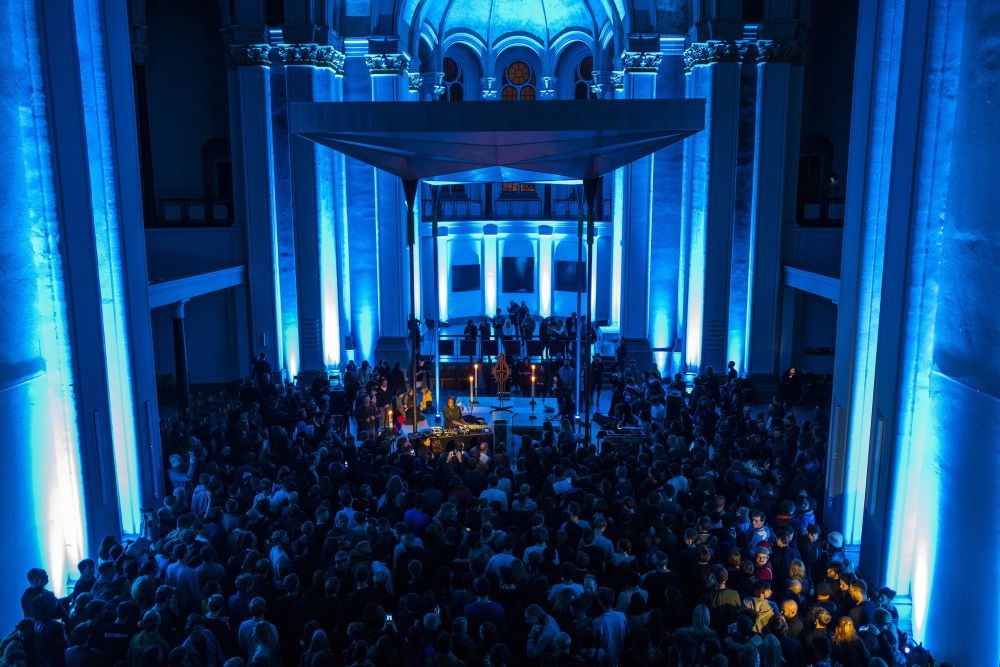Techno DJs in Berlin are campaigning for Unesco to protect their famed scene.

The thumping rhythm of techno emerged in Detroit in the mid-1980s. When the Berlin Wall fell, Berliners took the genre and made it an element of unification. Clubbers from both sides took to abandoned bunkers, power plants, and factories in the city’s east to celebrate their freedom.
The creatives behind the Love Parade festival, DJs and pioneers of the German capital’s biggest clubs believe that the UN body’s support is crucial in securing the future of techno. Dr. Motte – the techno pioneer responsible for “Love Parade” and 2020’s “Rave the Planet” – is spearheading a new campaign. Calling on Unesco, it grants Berlin techno “intangible cultural heritage” status (ICH) in recognition of the genre’s unifying influence on the city following the fall of the Berlin Wall.
“It would mean that the government and authorities have to help the culture continue,” Motte explains to DJ Mag.
“It would mean easier access to money from the state for support… if we have that status, we could support clubs with lower taxes, and it could affect building and trading laws.”
High Art

Per The Guardian, protecting techno will help to preserve a “free, wild, creative Berlin” in the face of gentrification. It also helps to prevent wide-scale venue closures, Detroit DJ Alan Oldham tells the Observer.
Oldham’s 1980s radio show gave techno its first platform. Gaining entry into clubs like Berlin’s notorious Berghain nightclub is a feat, even for some of the world’s most famous DJ’s and performers.
In 2016, Berghain won a legal battle to be designated a “high art” venue, which allows it to pay a lower tax rate than venues that sell “high culture,” such as concert halls.
“Legacy venues like Tresor and Berghain for example would be protected as cultural landmarks.” Says Oldham. He adds that,
“Unesco protection would go a long way towards maintaining that old spirit”.
Oldham is also a member of the “Underground Resistance Collective”. He’s supporting a campaign by “Rave the Planet”, founded by Dr Motte – the DJ who founded Love Parade.
Behind the scenes!
Our film on the @UNESCOEU application to get #TechnoCulture recognized as Intangible Cultural Heritage is now available on @YouTube‼#bts #unesco #techno #detroittechno #berlintechno #culturalheritage @ellenallien @BPitchControl @dr_motte @ravetheplanet pic.twitter.com/gjm2nmotss
— Herr Alterschinken (@alan_oldham) November 17, 2021
A new short info film is part of the UNESCO application to add Berlin’s techno culture to the list of Intangible Cultural Heritage.
It features representatives of the culture, discussing what makes techno culture unique in Berlin. It also explores techno’s international influence, its evolution and why the culture is threatened, requiring the protection of UNESCO.
Recognising Techno

Supporters and pioneers of techno in Berlin are busy campaigning for the genre to be granted UNESCO’s “intangible cultural heritage” status to recognise its significance to Berlin.
“So many venues have closed in just the seven years I’ve lived here full time.” says Oldham.
“In other cities, it would be the natural club cycle at work, but Berlin is a different kind of place, where the club and creative scenes are the currency of the city.”
ICH is typically granted to more esoteric activities, such as Malawian Mwinoghe dancing or Slovakian bagpipe culture. Jamaican reggae and India’s massive Kumbh Mela festival have been recognised, however – and the Dutch government supports Amsterdam’s Pride festival. Recognising techno helps to provide clubs with additional protection under city planning laws, as well as access to government subsidies and other funding sources.
“Unesco protection would help a lot towards establishing techno and club culture as a legitimate social force with historical value and worthy of government support, not just hedonistic, disposable club music and drugs,” Oldham says.
World Heritage Status

Last year, a financial high court ruling in Germany resulted in a crucial tax break for the country’s clubs. This is following nationwide coronavirus lockdowns. However, techno’s most ardent supporters are not content with that; they are now petitioning for world heritage status.
Obtaining cultural heritage status from Unesco is definitely a challenge. Despite the fact that the UN body “seems supportive” regarding the initial application, Motte suggests that it could take “two, five or 10 years to get a final outcome”.
The campaign’s ambition also stretches far beyond the Berlin city limits. “To get to the status of Unesco Intangible Cultural Heritage for techno in Germany, this is what we want to work towards,” Motte explains.
“And then Europe. But first, we start in Berlin.”
Check out “Rave the Planet: Techno Culture in Berlin” below:
Subscribe to FIB’s Weekly Breaking News Report for your weekly dose of music, fashion and pop culture news!






